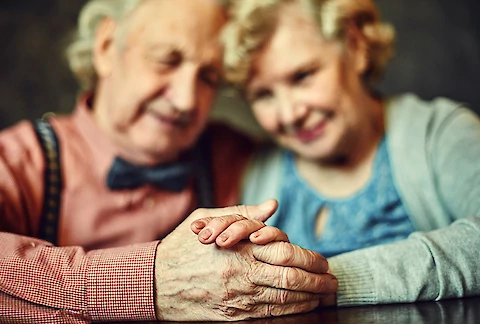
Will I Get Alzheimer’s? 6 Ways to Reduce the Risk
When I tell people I’m caring for my 91-year-old dad who has Alzheimer’s disease, they look at me sympathetically and say, “I don’t know how you do it.” When they learn that I also cared for my grandmother when she had Alzheimer’s, they gingerly ask, “Are you afraid of getting it yourself?”
Well, yes, actually. I’m terrified.
With World Alzheimer’s Day next month (Sept. 21), it’s on my mind more than usual. No one wants to get Alzheimer’s, but when it’s affected others in your family, you feel a gnawing fear whenever you realize you’ve misplaced something or forgotten a name.
According to Jessica Langbaum, associate director of the Alzheimer’s Prevention Initiative, someone with a parent or sibling who developed Alzheimer’s by age 85 may have two to four times the risk of developing the disease. If these relatives developed the disease after age 85, the risk is probably the same as anyone else who lives to that age. The Alzheimer’s Association reports that the risk increases when multiple family members develop the disease.
No genetic test can definitively predict who will or will not develop Alzheimer’s disease. The National Institute on Aging has a helpful fact sheet that says, “Genetic testing is used by researchers conducting clinical trials and by physicians to help diagnose early-onset Alzheimer’s disease. However, genetic testing is not otherwise recommended.”
I often ask people whether they would want to know if they had a higher genetic risk of developing Alzheimer’s. Many tell me they just don’t want to think about it; others say they’d rather not know because they’d feel helpless to do anything about it. In my case, I’d want to know if — and only if — it was a definite predictor.
With the future uncertain, I think it makes sense to do my best to lower my risk and prepare for Alzheimer’s, or any other catastrophic health condition, just in case.
Just as there are currently no cures for Alzheimer’s, there are no proven preventions. But experts say that what is heart-healthy is also brain-healthy. Because I’m an Alzheimer’s caregiver, it’s a huge challenge for me to find the time to follow these recommendations, but knowing my risk, I really try.
- Exercise regularly: I manage quick workouts on my mini-trampoline and schedule time for yoga or Pilates.
- Eat a healthy diet: I’ve gained almost 20 pounds while caregiving, and now am working hard to lose the weight by cutting down on stress-eating sweets and eating more fish and veggies — and just a little bit of dark chocolate!
- Stay mentally and socially engaged: I make an effort to stay connected with friends and keep my mind active. I've also taken up a new instrument — the ukulele.
- Manage stress: Caregiving is extremely stressful. I practice mindfulness, meditation and yoga, get acupuncture and sip on tea with stress-relieving herbs. Periodic vacations are a must for my mental health.
- Sleep well: I sometimes lose focus on other healthy habits, but rarely do I get less than eight hours of sleep. I listen to a guided meditation when I go to bed each night and it works like magic.
- Plan for the future: I’m preparing my finances, legal matters and long-term care plans, in case there is a day when I need someone to care for me.